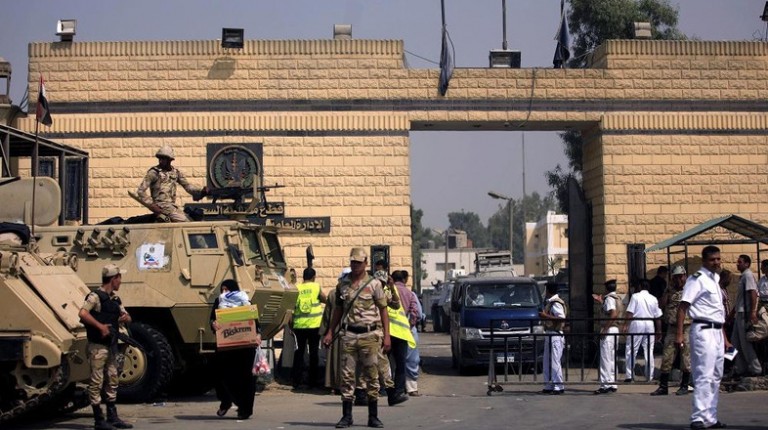A few days ago, the detainee, Suleiman al-Sayed al-Sharif, died inside the Minya al-Qamh police station in Sharkia Governorate, about a month after his arrest, bringing the number of deaths in Egyptian places of detention since the beginning of this year until now to 46 deaths.
The death of “Al-Sharif”, who works as an English language teacher, and was arrested last September 5 on charges of “joining a terrorist group”, a stereotypical accusation directed against political opponents, has brought back the spotlight on the dire conditions in Egyptian prisons, and the medical negligence The detainees suffer from, which led to the death of hundreds of them during the past few years.
626 deaths in places of detention in 7 years
Al-Nadim Center for Combating Violence and Torture, an independent human rights organization operating from inside Egypt, monitored in its monthly reports the death of 45 detainees inside Egyptian prisons and places of detention from the beginning of 2021 until the end of last September. By adding the case of Suleiman Al-Sharif, the total number of deaths will be 46. The highest months in which deaths occurred were February and June, with 9 deaths in each month, while the lowest months in which deaths occurred were March and April, when two detainees died each month separately.
Al-Nadim Center monitored during the year 2020 the death of 79 detainees in Egyptian prisons, 56 deaths in 2019, and 67 deaths in 2018, including 48 as a result of medical negligence and 6 cases due to torture, while 118 detainees died in places of detention during 2017, and 123 cases were recorded. Deaths in 2016, and 2015 recorded a record number of deaths in prisons, with 137 cases. Thus, the total number of deaths in Egyptian prisons during the last 7 years becomes 626, all of which took place during the era of President Abdel Fattah El-Sisi, whose media praises Egypt’s prisons, which are similar to tourist resorts, day and night.
What are the causes of high prison deaths?
Egyptian prisons are an environment conducive to the proliferation of diseases, with record levels of overcrowding. According to the Egyptian National Council for Human Rights, which is affiliated with the government, the rate of overcrowding in prisons reaches about 150%, and exceeds 300% in police stations. Independent organizations estimate the situation is even worse. Egyptian prisons are famous for their filth and violation of hygiene and health rules, as they have no running water, no proper ventilation, and most of the time no sunlight enters them. In November 2019, two experts from the United Nations said that abusive detention conditions in Egypt “may seriously endanger the health and lives of thousands of prisoners.”
Above all, there is a clear shortcoming in the health care that prisoners receive. According to former detainees, prison authorities obstruct medical care procedures for nothing but to intimidate them. The patients are refused entry to the necessary drugs, and prisoners are also refusing to leave patients for treatment in hospitals, even at their own expense. The Egyptian authorities are not afraid of the consequences of medical negligence in prisons. Even the politically motivated detainees locally and internationally were not extradited, led by the late President Mohamed Morsi, who suffered both due to medical negligence and died during his court session.
Experts at the United Nations indicated that the conditions in Egyptian prisons directly led to the death of “Morsi”, as the former Egyptian president was suffering from diabetes and high blood pressure, and despite this, he was prevented from obtaining life-saving care, and as a result he suffered from poor eyesight. Gradually he lost sight in his left eye and often fell into a diabetic coma and lost consciousness. In addition, he suffered from tooth decay and gum infections, without medical attention. All of this is taking place under the noses of the Sisi administration, which is believed to be using medical negligence as a weapon to get rid of its opponents without any trouble. It is enough for you to fall ill in prison so that your inevitable fate is death.





Recent Comments